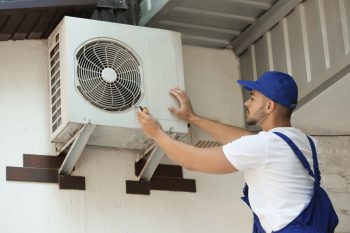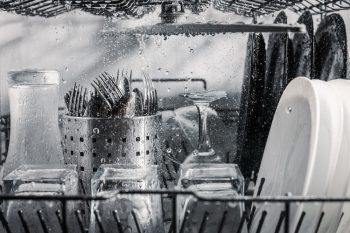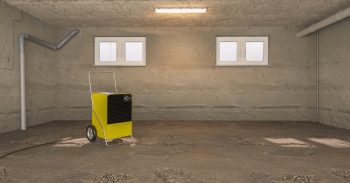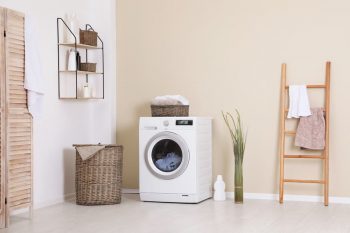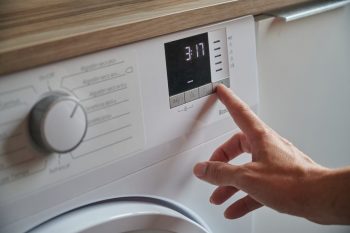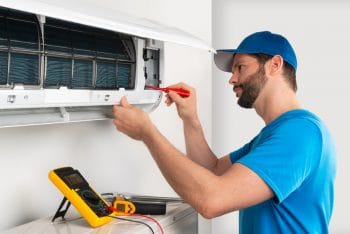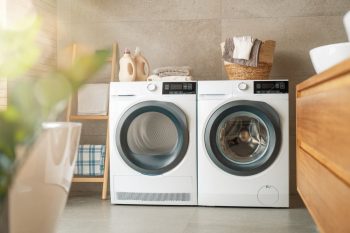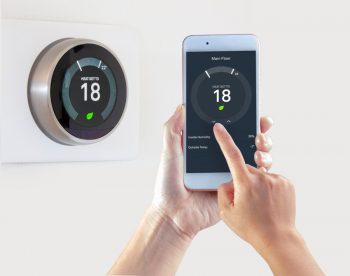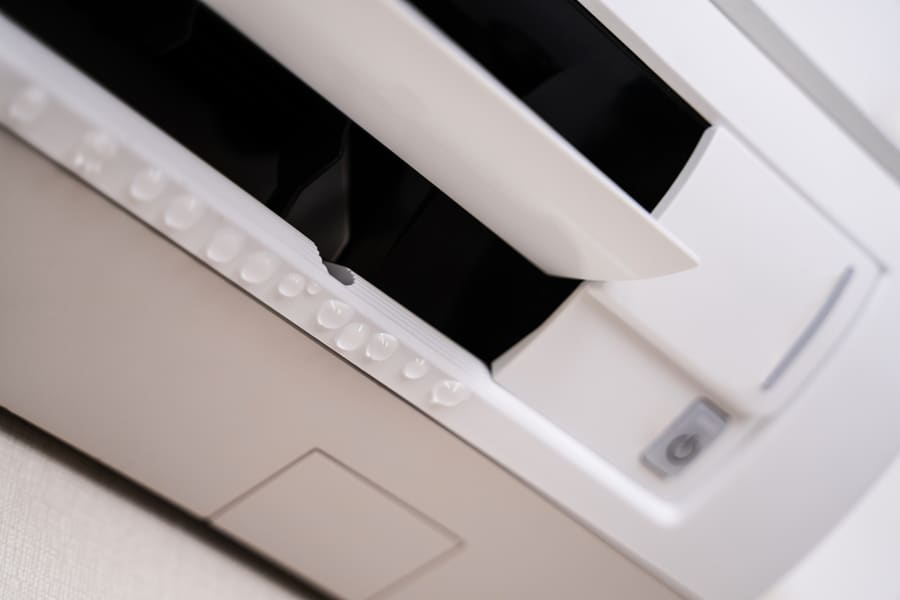
Your air conditioner might leak water now and again, and you probably already know how to fix that when it happens.
What if the leak comes directly from the unit, dripping inside your home? Interestingly, this can be caused by similar problems. There are specific issues that could lead to an indoor AC leak.
What common causes might make your AC leak water inside, and, more importantly, how can you fix it? Here’s what you need to know.
- Air conditioners can leak indoors for a variety of reasons.
- Some problems, like a dirty air filter or drain line, can be fixed with no help from a pro.
- More serious problems will require the expertise of an HVAC specialist.
- Acting as soon as a leak appears can help prevent the problem from exacerbating.
Your AC can leak indoors, which becomes even more of a hassle when that happens. So before things get worse, turn off the AC and try these steps to stop the leak from making a mess inside your house.
Reasons for an Indoor AC Leak
1. Dirty Air Filter
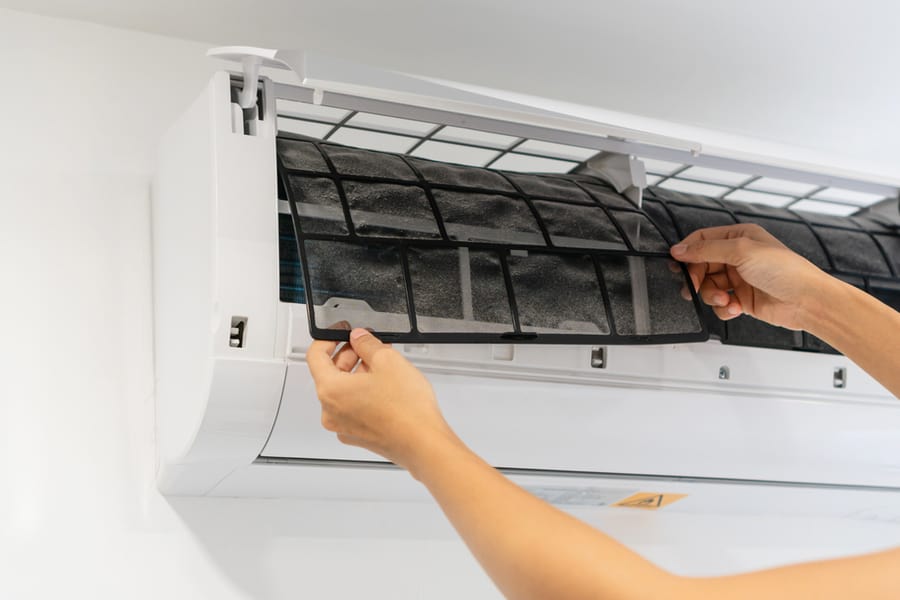
Your air filters prevent dirt and dust from penetrating your air conditioning system. However, with time, the filter may accumulate too much dirt.
When this happens, airflow may become restricted, preventing the refrigerant from properly absorbing heat.
This causes the condenser to become too cold, producing frost and ice as it freezes. The ice will slowly melt and drip when the air conditioner is turned off.
The leaking meltwater could drip indoors depending on where the ice accumulates.
How To Fix It
The obvious answer would be to clean your air filters. Experts recommend cleaning the filters every month or two.
This guarantees that dirt doesn’t accumulate and that air quality remains clean and healthy.
2. Clogged Drain Line
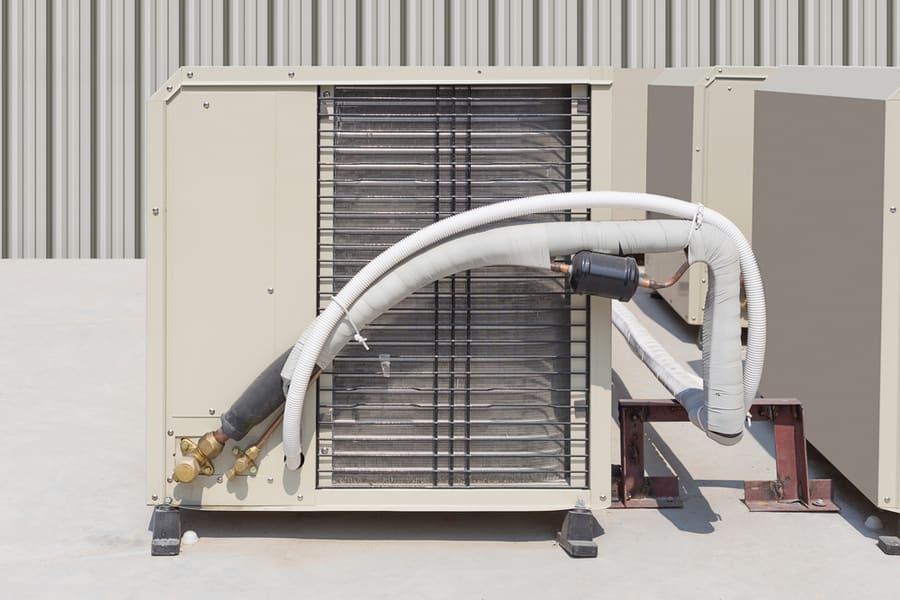
Your air conditioner is designed to handle condensation, a natural by-product of the cooling process.
So inside the unit has a drainage system that controls moisture that the air conditioner collects from your ambient air. Whatever it collects passes through the drain system and outside of the unit.
Dirt and debris can pass into the drain line, especially for older units that aren’t so well maintained. The line could become clogged when this happens, preventing water from passing through.
With nowhere to exit, the accumulated water leaks through the system, possibly dripping into your home.
How To Fix It
Turn off the unit and look for the drain pan. Check if there’s any water.
Dispose of whatever water you find, and then locate the drain line. You can check your manual for a more accurate breakdown of your AC’s anatomy.
Use a slim wire brush to clean the inside of the line.
Alternatively, you can use a small suction to clear or siphon a clog. Pour a small amount of water into the line to see if it flows freely.
3. Broken, Old Drain Pan
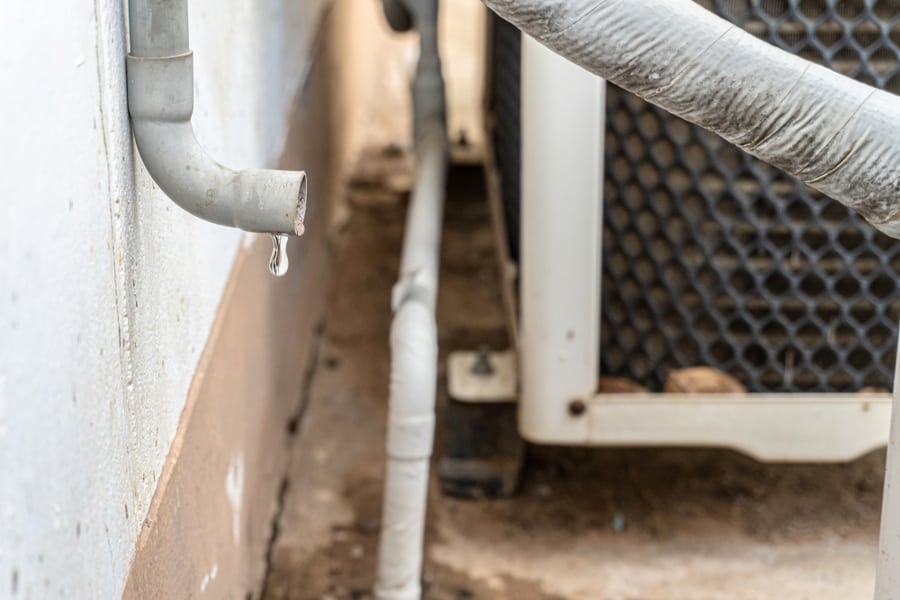
Positioned underneath the coils is a drain pain that catches condensate and water, which feeds into the drain line.
Some older models use a metal drain pan that can become rusted with time. Cracks and breaks in the pan’s surface can cause water to drip directly downwards into your home.
How To Fix It
Unfortunately, no patch-up job can fix a broken, rusty drain pan. Your best option would be to buy a replacement from the manufacturer.
Remember that some older models might have been phased out, so replacement parts can be hard to come by.
If that’s the case, you may consider calling a professional to find an alternative if replacing your AC isn’t an option.
4. Condensate Pump Damage
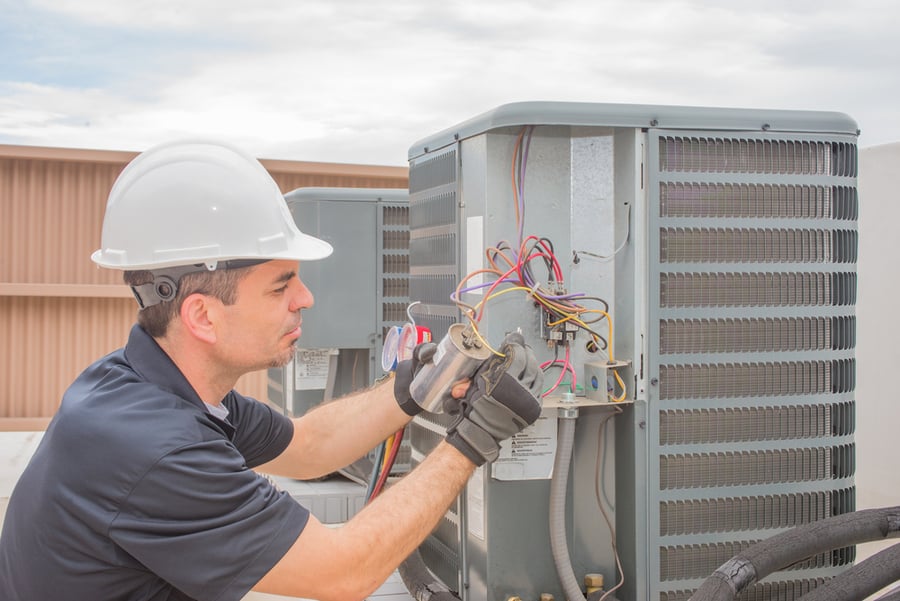
This is a problem that people with centralized air conditioning tend to experience.
If your HVAC system is in an attic, basement, or some far away utility room, collected water must travel some distance before it’s drained.
So to prevent water from pooling somewhere along the line, installers use a condensate pump.
As the collected condensate rises in the reservoir, it triggers a float switch that turns the pump on. When it turns on, it pumps the collected water out.
If there’s damage to the pump or the float switch, water will continue to accumulate, potentially causing leaks in your home.
How To Fix It
Again, this isn’t a problem you can fix on your own. Instead, turn off your air conditioner and have your HVAC specialist diagnose the unit.
5. Improper Installation
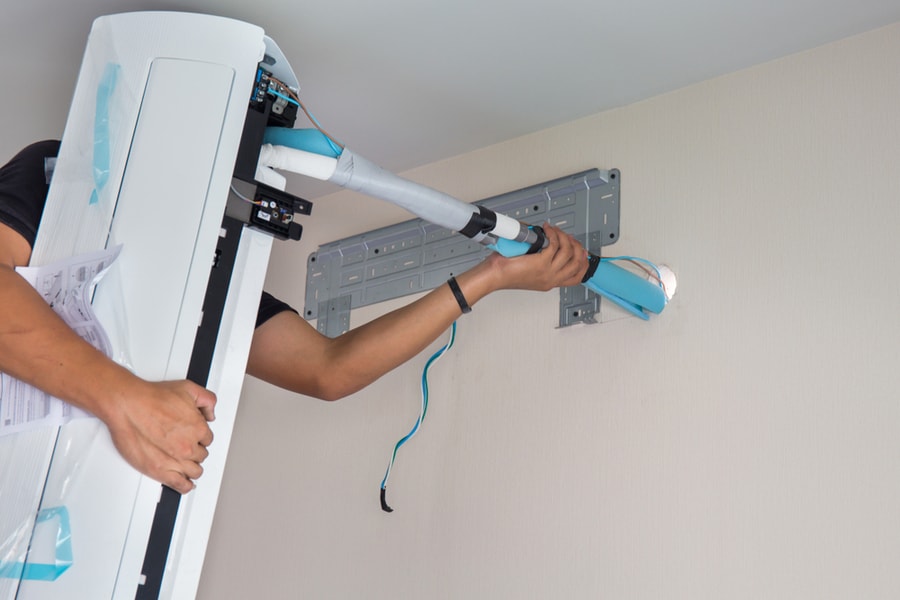
Particularly true with window air conditioners, improper installation can cause condensate to leak indoors. You don’t get the intricate water collection system with a window air conditioner like other ACs.
A lot of the draining happens by way of gravity. That’s why window air conditioners are often tilted back, so water flows back and down outside your home.
If the window unit isn’t properly tilted, it could cause water to flow forward instead of backward. This will force collected condensate to leak inside your home instead of outside.
How To Fix It
You might be able to adjust on your own. But first, apply some force to tilt the unit up from the inside.
Positioning problems may also exist with split and centralized ACs, but fixing them must be a professional job.
6. Low Refrigerant Levels
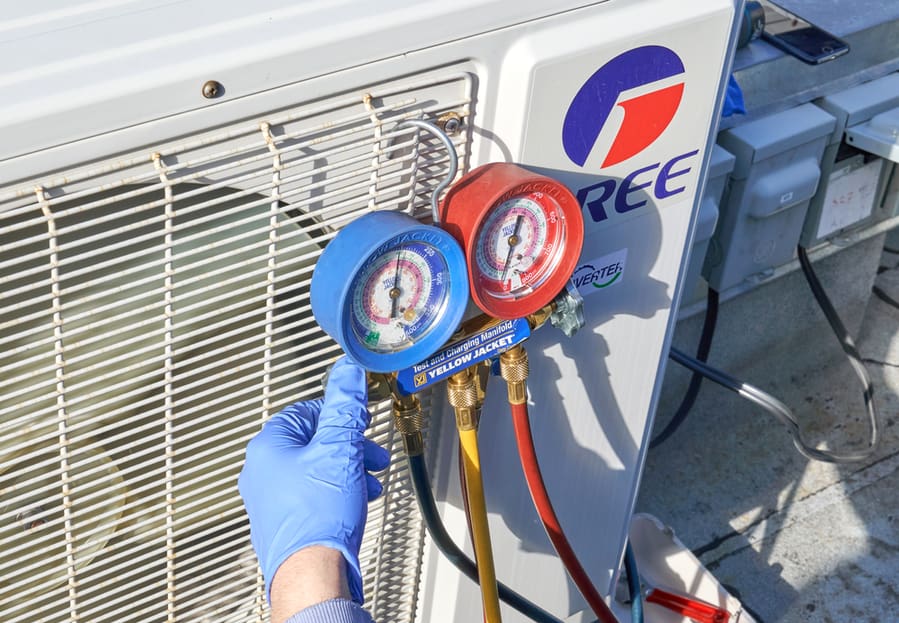
Again, low refrigerant levels get in the way of proper temperature exchange. As the pressure inside your air conditioning unit drops, cold increases, and the condenser coils freeze.
As a result, you could have ice formation that melts and drips indoors when you turn your air conditioner off.
How To Fix It
Refrigerant is a highly dangerous chemical you shouldn’t handle alone. Instead, call a professional to restore refrigerant levels safely and properly.
Takeaway
A leaking air conditioner is a big hassle. So to prevent the problem from worsening, you must get to the bottom of the issue.
Fix what you can to stop the leak, but don’t hesitate to call a professional.
Frequently Asked Questions
Can I Leave My AC on if It’s Leaking?
You probably could if it’s just a dirty air filter, but it’s not recommended. Air conditioners are designed to handle moisture, so any leaks indoors or outdoors indicate a problem with the unit.
Turn it off and solve the problem before it gets any worse. Keeping it running despite the leak can exacerbate existing damage and result in more expensive repairs and replacements.
Should I Be Worried if My AC Is Leaking?
Not necessarily, but it becomes a serious health concern if it leaks refrigerant. Refrigerant can leak into your home through the AC unit, and this harmful chemical can cause major dangers to you and your family.
If you suspect that the leak is refrigerant and not water, call an HVAC specialist as soon as possible and vacate the room where the leak is.

